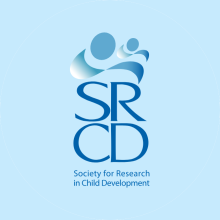April 2014 Spotlight on the SRCD Policy Fellow: Christine Fortunato, Ph.D.
2013-2014 Federal Executive Branch Policy Fellow
I was given the incredible opportunity to spend a second year as an Executive Branch Policy Fellow in the Office of Planning, Research and Evaluation (OPRE) within the Administration for Children and Families (ACF). OPRE is responsible for advising the Assistant Secretary on increasing the effectiveness and efficiency of programs to improve the economic and social well-being of children and families.
For my spotlight, I wanted to explore some of the advantages of continuing the SRCD Executive Branch Policy Fellowship for a second year. These advantages include, but are not limited to:
- Being Involved in a Research Project from Start to Completion. The second year of the fellowship has allowed me to be involved in the Head Start Coaching Study: Design Phase from the kick-off meeting with the contractors to the completion of the final report. The study is tasked with developing design options for a research study providing evidence for the most efficient practices in coaching within the context of Head Start professional development systems. My involvement in this study has expanded my content knowledge in the area of professional development for early education providers. It has also reinforced for me that innovative methodological approaches are vital to the exploration of evidence-based components or kernels—“fundamental units” or specific activities of effective interventions for children and families that have been shown experimentally to influence particular behavior changes.
- Leading New Research Initiatives and Work Groups. This year I have further cultivated my leadership skills by managing new research initiatives and facilitating work groups. In particular, under the guidance of my federal project officer, I am managing the new task order to assess the knowledge base and develop a theory of change model for understanding Early Head Start (EHS)-child care partnerships to support quality improvement, child development, and family well-being in early childhood settings serving infants and toddlers. This is particularly exciting because the expansion of EHS-child care partnerships is a key component in President Obama’s Early Learning Plan. To me, this project has highlighted how public policy can shape and inform research priorities.
- Developing and Honing Research Dissemination Skills. A major advantage to staying on for a second year is the ability to develop and hone my skills for disseminating complex research findings in a clear, succinct way, tempered appropriately by caveats and nuances. For example, my colleagues and I have given presentations to senior staff at ACF about the constructs of toxic stress, adverse childhood events, and trauma. The goals of these presentations have been to clarify the overlap and divergence of terms, measures, and findings; highlight what is known to date and the remaining unanswered practice- and policy-relevant questions; and discuss the implications and recommendations for policy and practice. Additionally, I have been working with OPRE staff and consulting experts on white papers, executive summaries, and practitioner toolkits regarding self-regulation and executive function across the life course and the implications of existing research on ACF programs serving lowincome children and their families.
As I enter the final months of my fellowship, I am amazed by how much my fellowship experiences have enhanced my professional development. I am forever indebted to my mentors at OPRE, SRCD, and other federal agencies for helping me gain insight on how building strong bridges between research, policy, and practice can foster well-being in low-income children and families nationwide.
